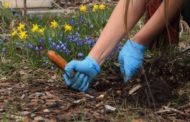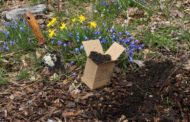TESTING FIRST
Some neighborhoods are eligible for free garden soil tests from the Portland Soil Lead Awareness project
By Tony Zeli
As grocery store shelves empty and cooped up Mainers start looking for ways to get outside and enjoy the spring, many will turn to home gardening. While gardening is a healthy—and, shall we say, solitary activity—there is one threat: lead contamination. Especially on Portland’s peninsula, we find unsafe levels of soil lead. So, to encourage gardening while promoting safety, the Cumberland County Soil and Water Conservation District (CCSWCD) is offering free soil tests in Bayside, East Bayside, Parkside, and West End neighborhoods.
Portland Soil Lead Awareness Project
Laura Heinlein is an AmeriCorps Environmental Steward with the Conservation District. She is currently working on an EPA funded education campaign to raise awareness about lead in Portland’s soils.
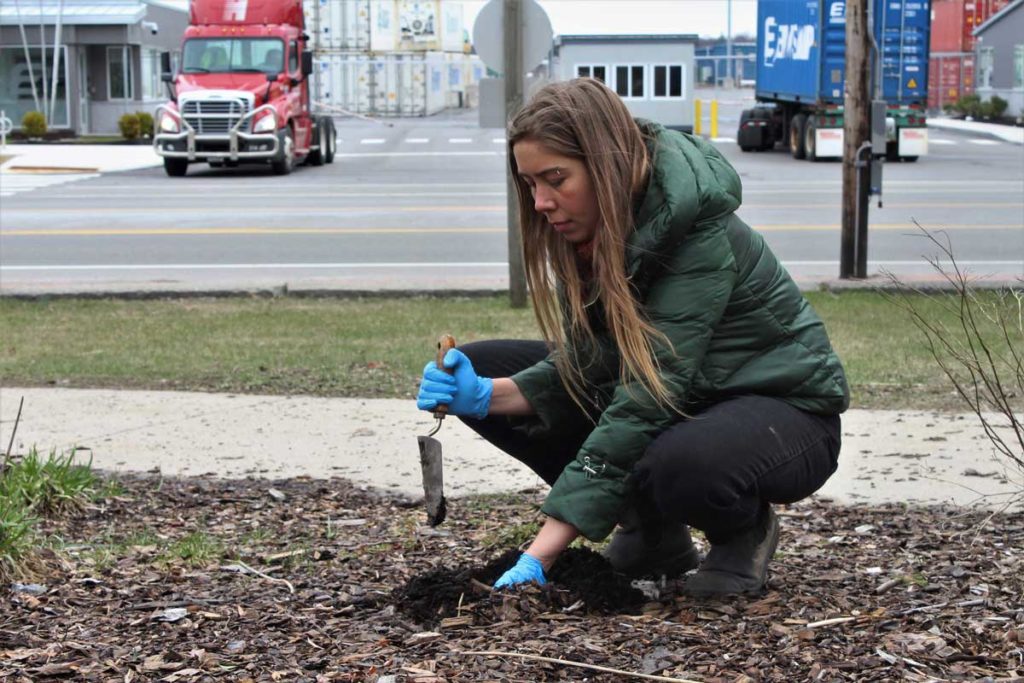
“Gardening is a great activity to get outside in a contained environment, as well as a means to build awareness of the need for resilient local agriculture. The crux of our education initiative is to encourage people to test their soil,” wrote Heinlein in an email to the West End News.
Heinlein noted that past soil testing on Portland’s peninsula found levels of lead ranging from 10 parts per million (ppm) to as high as 25,000 ppm. Naturally occurring soil lead tops out at 50 ppm. Anything above 100 ppm is risky and requires safe gardening techniques.
Test, Test, Test
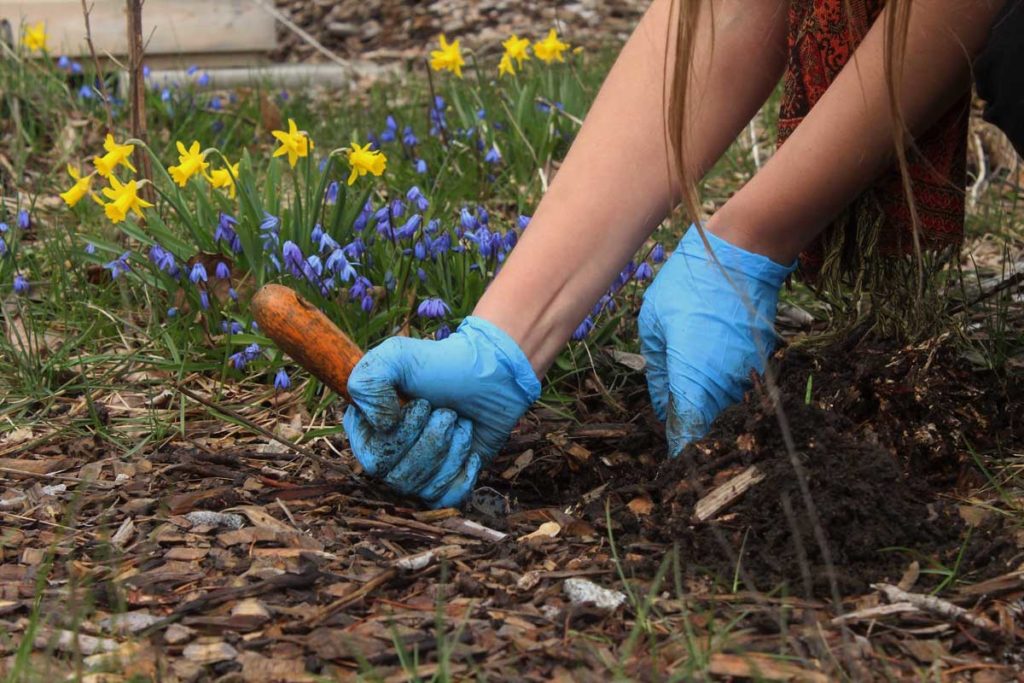
The Cumberland County Soil and Water Conservation District is providing free soil tests to gardeners in Bayside, East Bayside, Parkside, and West End. These four neighborhoods are considered high-risk for soil contamination.
At low levels, lead in soil is considered safe, but at 100 ppm there is a risk to your health. At more than 400 ppm the amount of lead in your soil is dangerous. It is possible for a person to breath in small amounts of lead from the contaminated dirt or consume it on dusty vegetables. The lead builds up in your body for months or even years, just like it does in the soil. Methodically, the contamination gives you lead poisoning.
But don’t worry. It is certainly safe to garden in Portland! To avoid risks associated with high lead levels, we first must know the levels at a specific site. And the only way to do that is testing. And if you find high levels of lead on your site, don’t worry, you can still garden. Start by growing in raised beds or containers and by selecting plants that take up less lead.
Damon Yakovleff is an Environmental Planner with the Conservation District. “We have seen evidence that the COVID situation has generated increased interest in gardening, which is wonderful, Yakovleff said. “In fact, the project we are working on started in part because of the general trend we have observed towards increase in home gardening and local food production over the last decade or so. We want to encourage this. But we also want people to be aware of the potential for soil contamination so they can garden safely.”
Who should be testing their soil?
Everyone should test if they have not done so. But even those who have tested in the past are encouraged to get another test. This is an opportunity to see if there has been any change in the detected lead levels. Yakovleff hypothesizes that there may be some transport of lead even to raised beds. This may be occurring either via soil erosion due to wind and water or from buildup of contaminated leaf litter. With your help, the project may be able to confirm these suspicions.
As part of this project, Conservation District staff will collect the soil sample and deliver the results, for free, to anyone in the targeted neighborhoods. So if you are someone who is growing or wants to grow food on their land, don’t hesitate. The state considers the Conservation District’s personnel as essential and their testing methods are COVID-safe.
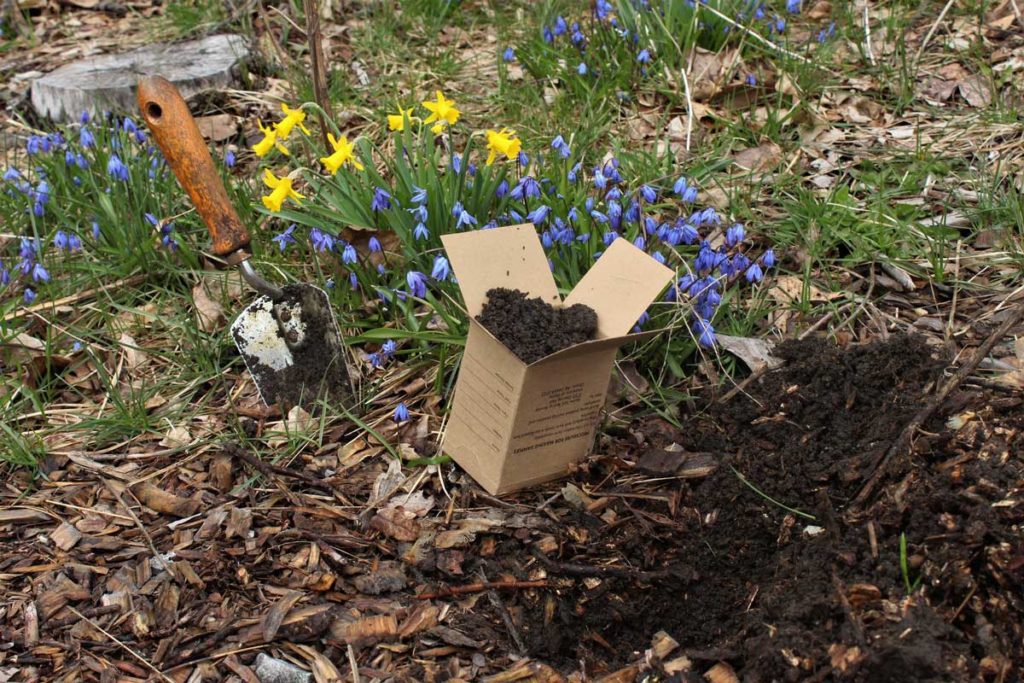
What to do if you have high levels of lead?
Raised beds (or garden boxes) are the safest way to garden in soils with moderate to high levels of lead.
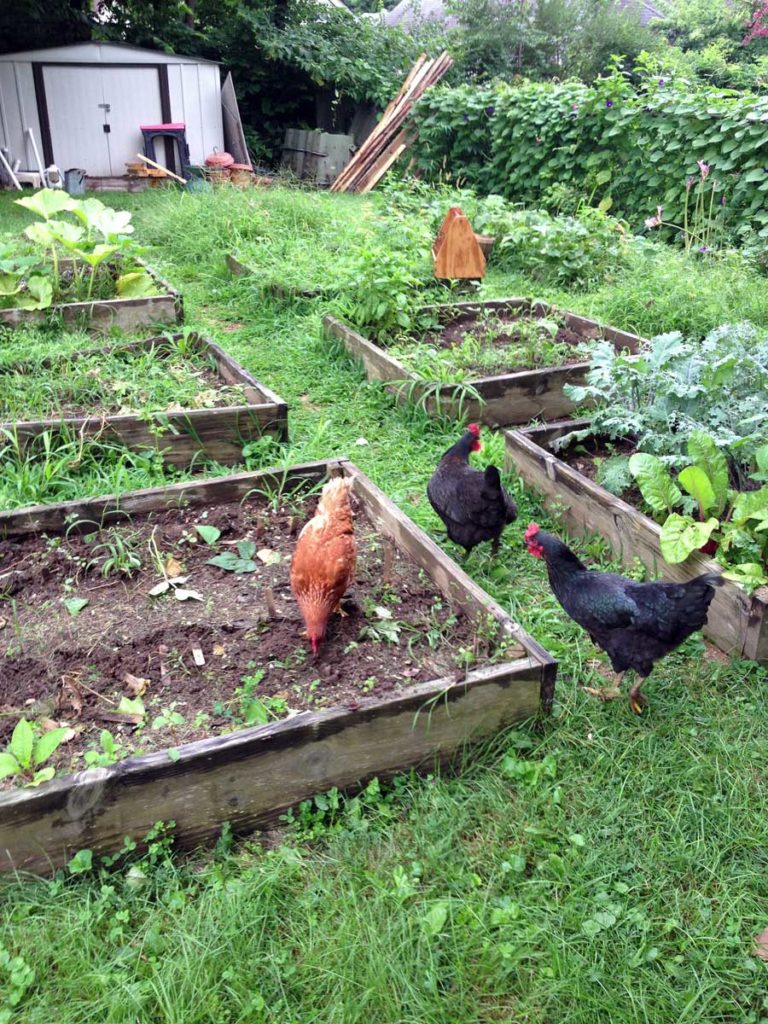
To start a raised bed:
- Remove the top two to three inches of your original garden soil.
- Add a barrier such as landscape fabric or carboard to avoid soil contamination.
- Place your box frame, and fill the box frame with clean soil and compost.
Also, consider the type of food you grow in your garden. Some plants take up less lead such as: cucumbers, tomatoes, peppers, corn, pumpkin, squash, eggplant, berries, and apples. Plants that are unsafe tend to be root plants and leafy vegetables. Examples include: turnips, onions, beets, potatoes, yams, lettuce, cabbage, carrots, spinach, and kale.
In addition, after a completed soil sample, the Conservation District will follow up with recommendations that are site specific where higher levels of lead contamination are found. The follow up will include a study of lead content in plant tissues in order to understand the amount of actual risk due to consumption of potentially lead-contaminated produce.
For highly contaminated sites, the Cumberland County Soil and Water Conservation District will work with partners, such as the City of Portland, to connect landowners with resources for remediation.
How to get a free test?
If you live in a targeted neighborhood (Bayside, East Bayside, Parkside, and West End), please sign up for the free soil test at https://tinyurl.com/FREESoilTest.
For all others, Yakovleff strongly suggests that everyone test their soil. Test even if you live outside the targeted neighborhoods, especially if you live in a city or village center.
Tests are available via the Maine Soil Testing Service. An $18 basic soil test is well worth it. Visit https://umaine.edu/soiltestinglab/.

